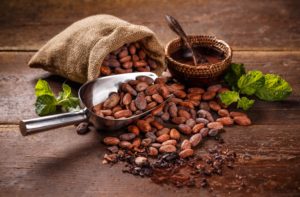The Natural Antioxidant group, known as Polyphenol Research, works on projects related to the investigation of bioactive compounds from foods and their biological activity in humans.
Study of bioactive compounds in food
- Study a wide range of food composition and determinate how the levels and effects of polyphenols are modified by intrinsic factors such as genetics, and extrinsic factors, in particular culture, technology, food processing and storage.
- To evaluate factors that affect compounds bioavailability, such as the permeability of the compound in the absorption place, the metabolism that they suffer at intestinal and hepatic level and the intestinal microbiota, among others, making combined use of two chromatographic techniques: LC-ESI-LTQ-Orbitrap and HPLC-ESI-MS/MS for identification and quantification of metabolites, respectively.
Cooking effect
- Study the effect of cooking on the nutritional composition, bioactive compounds and sensory quality of food, promoting the use of extra virgin olive oil.
- Evaluate ingredients of tomato-based “sofrito” and their synergistic effect to determine their possible protective effect against the oxidation of phenolic compounds and determine if the ingredients may contribute to extract the bioactive compounds from the tomato, favoring their absorption.
Nutritional studies of bioactive compounds: clinical trials and epidemiological studies
- Optimize evaluation methods of nutritional biomarkers, in different biological samples, to know more precisely the food intake of foods, nutrients, non-nutrients and/or dietary patterns. One of the main analyzes we perform is to identify and/or quantify polyphenols in urine as a biomarker of fruit and/or vegetable intake.
- To assess the effect of the Mediterranean diet enriched with phenolic compounds-rich foods on modulation of risk factors for type 2 diabetes mellitus.
- To assess the effect of bioactive components of the Mediterranean diet, such as polyphenols, carotenoids and/or vitamins, in cardiovascular diseases prevention and reduction, through cohort studies. Also, study the consumption of food in different presentations (fresh and processed), and the influence they have on blood pressure values.
- To develop methods for identification and/or quantification of microbiota metabolites and observe the effect they have on cardiovascular health indicators in different populations.
- Design, implement and evaluate epidemiological studies in nutrition, thus providing the necessary tools to carry out health prevention and promotion interventions more effectively. The main activities we do are to evaluate dietary intake and eating habits, anthropometric measurements, biochemical analysis, and collection and/or analysis of biological samples.

 Español
Español Català
Català
















